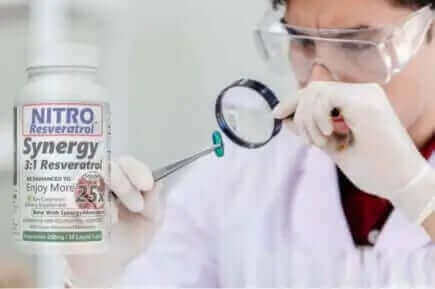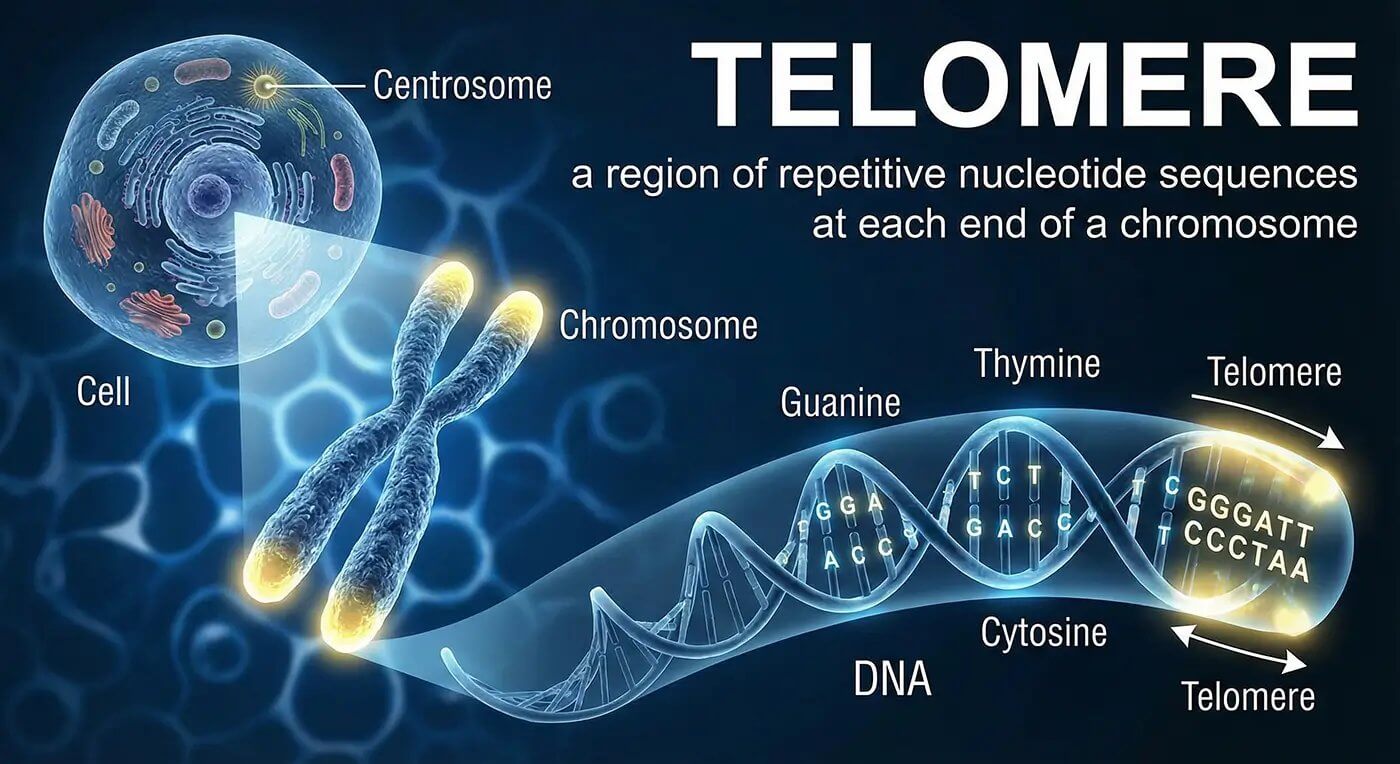Resveratrol: The Science-Backed Compound Transforming Longevity and Health
Resveratrol stands at the forefront of anti-aging research, offering remarkable health benefits that mirror the effects of caloric restriction without the need for food deprivation. This naturally occurring compound, found in red grapes, berries, and peanuts, has captured the attention of scientists worldwide for its ability to activate longevity proteins and protect against age-related diseases. Recent studies reveal that resveratrol supplementation can significantly improve cardiovascular health, metabolic function, and cellular protection.
Understanding How Resveratrol Works: The Cellular Protection Mechanism
The fascinating story of resveratrol begins with a groundbreaking discovery in longevity research. Scientists found that reducing caloric intake dramatically extends lifespan in various organisms, from yeast to mammals. This calorie restriction activates protective proteins called sirtuins, which enhance cellular efficiency and resilience. However, maintaining a calorie-restricted diet proves challenging for most people seeking longevity benefits.
Enter resveratrol, nature's answer to this dilemma. This polyphenol compound activates the same sirtuin proteins triggered by caloric restriction, offering similar protective effects without requiring food deprivation. Research demonstrates that resveratrol supplements can extend lifespan in certain organisms while reducing the risk of age-associated diseases by mimicking the beneficial effects of eating less.
National Institute of Health Review: Comprehensive Resveratrol Benefits
A landmark review conducted by National Institute of Health researchers examined extensive scientific literature on resveratrol's metabolic and cardiovascular effects. Published in Trends in Cell Biology, this comprehensive analysis revealed multiple pathways through which resveratrol protects human health. The researchers identified several key areas where this compound demonstrates remarkable therapeutic potential.
Cardiovascular Protection Through Resveratrol
The cardiovascular benefits of resveratrol prove particularly impressive. Clinical studies show that patients with existing coronary heart disease experience improved blood flow when taking resveratrol supplements. The compound works through multiple mechanisms:
- Enhanced blood flow: Resveratrol promotes vasodilation, allowing blood vessels to relax and improve circulation
- Reduced blood pressure: Regular supplementation helps maintain healthy blood pressure levels
- Prevention of vessel constriction: The compound protects against arterial narrowing
- Direct cardiac cell protection: Resveratrol shields heart muscle cells from oxidative damage
- Improved post-ischemic recovery: Faster healing after cardiac events
Metabolic Health and Diabetes Management with Resveratrol
The metabolic effects of resveratrol extend beyond cardiovascular protection. Research indicates significant benefits for individuals managing obesity and type 2 diabetes. Since cardiovascular disease remains the leading cause of mortality in diabetic patients, resveratrol's dual action on both conditions makes it particularly valuable for comprehensive health management.
Studies demonstrate that resveratrol supplementation helps regulate blood sugar levels, improves insulin sensitivity, and supports healthy weight management. These effects work synergistically with the compound's cardiovascular benefits, creating a protective shield against metabolic syndrome.
The Science Behind Resveratrol's Multi-System Benefits
One of the most intriguing aspects of resveratrol research involves understanding how one compound affects so many biological pathways. Scientists continue investigating the precise mechanisms through which resveratrol delivers its wide-ranging benefits. Current evidence points to several key actions:
Tumor Formation Reduction
Resveratrol demonstrates anti-cancer properties through multiple mechanisms, including the inhibition of tumor cell proliferation and the promotion of apoptosis in abnormal cells. Research shows promising results across various cancer types, though human clinical trials continue to explore optimal dosing strategies.
Anti-Inflammatory Effects
Chronic inflammation underlies many age-related diseases. Resveratrol acts as a powerful anti-inflammatory agent, reducing markers of inflammation throughout the body. This systemic effect contributes to the compound's protective benefits across multiple organ systems.
Neuroprotective Properties
Emerging research suggests resveratrol may protect against neurodegenerative conditions, including those involving beta-amyloid accumulation. The compound crosses the blood-brain barrier, offering direct protection to neural tissues and potentially slowing cognitive decline.
Optimizing Resveratrol Absorption: Advanced Delivery Methods
While resveratrol's benefits are well-documented, maximizing absorption remains crucial for therapeutic effectiveness. Standard resveratrol supplements face bioavailability challenges due to the compound's poor water solubility and rapid metabolism. However, innovative formulation techniques have dramatically improved absorption rates.
Micronized resveratrol represents a breakthrough in supplement technology. By reducing particle size to microscopic levels and combining with absorption enhancers like Tween, manufacturers have achieved up to five times greater bioavailability compared to standard formulations. This enhanced absorption means lower doses can achieve therapeutic effects, improving both efficacy and value.
Practical Applications: Incorporating Resveratrol Into Your Health Routine
Understanding how to effectively use resveratrol supplements empowers individuals to maximize their health benefits. Consider these evidence-based approaches:
Timing and Dosage Considerations
Research suggests taking resveratrol with meals may enhance absorption, particularly when consumed with healthy fats. Morning supplementation aligns with the body's natural circadian rhythms, potentially optimizing the compound's metabolic effects. While optimal dosing varies based on individual health goals, studies typically use doses ranging from 150mg to 1000mg daily.
Synergistic Combinations
Many researchers explore combining resveratrol with other longevity-promoting compounds. Quercetin, pterostilbene, and NAD+ precursors may work synergistically with resveratrol to enhance its effects. However, consulting healthcare providers before combining supplements ensures safety and optimal results.
Real-World Success Stories: Resveratrol Transforming Lives
Countless individuals report life-changing improvements after incorporating resveratrol into their wellness routines. From enhanced energy levels to improved cardiovascular markers, personal testimonials align with scientific findings. Many users describe feeling more vibrant and resilient, with laboratory tests confirming improvements in inflammatory markers and metabolic health.
Healthcare practitioners increasingly recommend resveratrol supplementation as part of comprehensive anti-aging protocols. The compound's safety profile, combined with its multi-system benefits, makes it an attractive option for proactive health management.
Future Directions in Resveratrol Research
The scientific community continues exploring resveratrol's potential applications. Current research focuses on optimizing delivery methods, identifying ideal dosing protocols for specific conditions, and understanding individual variations in response. Emerging studies investigate resveratrol's effects on cellular senescence, mitochondrial function, and epigenetic regulation.
As personalized medicine advances, genetic testing may help identify individuals most likely to benefit from resveratrol supplementation. This precision approach could maximize therapeutic outcomes while minimizing unnecessary supplementation.
Making Informed Decisions About Resveratrol Supplementation
Choosing high-quality resveratrol supplements requires understanding product specifications and manufacturing standards. Look for products with verified purity levels, preferably 98% or higher. Advanced formulations using micronization technology and absorption enhancers offer superior bioavailability compared to standard preparations.
Third-party testing ensures product quality and potency. Reputable manufacturers provide certificates of analysis confirming the absence of contaminants and verifying active ingredient concentrations. Storage conditions also matter; resveratrol degrades when exposed to light and heat, so proper packaging protects product integrity.
Frequently Asked Questions About Resveratrol
What is resveratrol and where does it come from?
Resveratrol is a natural polyphenol compound produced by plants as a protective response to stress. Rich sources include red grape skins, blueberries, cranberries, and peanuts. This powerful antioxidant gained fame through the "French Paradox," where moderate red wine consumption appeared to protect against heart disease. Today, concentrated resveratrol supplements offer therapeutic doses far exceeding what's possible through diet alone.
How does resveratrol mimic caloric restriction?
Resveratrol activates sirtuins, the same family of proteins triggered by caloric restriction. These proteins enhance cellular efficiency, improve mitochondrial function, and activate protective pathways that promote longevity. By stimulating these mechanisms without requiring food deprivation, resveratrol offers the benefits of eating less while maintaining normal caloric intake. This makes it an attractive option for those seeking anti-aging benefits without the challenges of restrictive dieting.
What are the proven cardiovascular benefits of resveratrol?
Clinical research demonstrates multiple cardiovascular benefits from resveratrol supplementation. These include improved blood flow in patients with coronary heart disease, reduced blood pressure, prevention of arterial constriction, direct protection of cardiac cells, and enhanced recovery after cardiac events. The compound works through multiple pathways, including nitric oxide production, inflammation reduction, and oxidative stress protection, creating comprehensive cardiovascular support.
Can resveratrol help with weight management and diabetes?
Yes, research indicates resveratrol supports metabolic health through several mechanisms. It improves insulin sensitivity, helps regulate blood sugar levels, and supports healthy fat metabolism. Studies show benefits for both obesity management and type 2 diabetes control. Since cardiovascular disease is the leading cause of death in diabetic patients, resveratrol's dual action on metabolic and heart health makes it particularly valuable for comprehensive diabetes management.
What's the difference between standard and micronized resveratrol?
Micronized resveratrol features dramatically reduced particle size, improving solubility and absorption. When combined with absorption enhancers like Tween, micronized formulations achieve up to 5 times greater bioavailability than standard supplements. This enhanced absorption means lower doses can achieve therapeutic effects, improving both effectiveness and value. The improved bioavailability ensures more resveratrol reaches target tissues rather than being eliminated unused.
Is resveratrol safe for long-term use?
Extensive research demonstrates resveratrol's excellent safety profile for long-term use. Studies using doses up to 5 grams daily show minimal side effects, though typical therapeutic doses range from 150-1000mg. Some individuals may experience mild digestive changes initially, which usually resolve with continued use. As with any supplement, consulting healthcare providers ensures safety, especially for those taking medications or managing health conditions.
How long does it take to see results from resveratrol supplementation?
Individual responses vary, but many users report initial benefits within 2-4 weeks, including improved energy and mental clarity. Cardiovascular and metabolic improvements typically become measurable after 8-12 weeks of consistent resveratrol supplementation. Long-term benefits, including cellular protection and anti-aging effects, accumulate over months and years. Regular monitoring of health markers helps track progress and optimize dosing strategies.
Can resveratrol be combined with other supplements?
Resveratrol works well with complementary supplements. Popular combinations include quercetin for enhanced absorption, pterostilbene for synergistic effects, and NAD+ precursors for cellular energy support. Some research suggests combining resveratrol with omega-3 fatty acids or curcumin may provide additional benefits. However, spacing supplement intake and consulting healthcare providers ensures optimal absorption and prevents interactions.
What should I look for when choosing a resveratrol supplement?
Quality indicators include purity levels of 98% or higher, third-party testing verification, and advanced delivery systems like micronization. Check for certificates of analysis confirming absence of contaminants. Proper packaging that protects against light and moisture ensures product stability. Reputable manufacturers provide detailed product information and batch testing results. Enhanced formulations with absorption boosters offer superior value despite higher initial costs.
Who benefits most from resveratrol supplementation?
While resveratrol offers broad health benefits, certain groups may experience particularly significant improvements. These include individuals with cardiovascular risk factors, those managing metabolic conditions like diabetes or obesity, people seeking cognitive protection as they age, and anyone interested in proactive longevity strategies. Athletes and active individuals also report benefits including improved recovery and endurance. The compound's multi-system effects make it valuable for comprehensive health optimization across diverse populations.
Conclusion: Embracing the Promise of Resveratrol
The scientific evidence supporting resveratrol's health benefits continues to grow, offering hope for those seeking natural approaches to longevity and disease prevention. From cardiovascular protection to metabolic support, this remarkable compound demonstrates why nature often provides the most elegant solutions to complex health challenges. As research advances and delivery methods improve, resveratrol stands poised to play an increasingly important role in preventive health strategies.
Whether you're managing existing health conditions or proactively optimizing wellness, resveratrol supplementation offers scientifically validated benefits worth exploring. The compound's excellent safety profile, combined with its multi-system effects, makes it a valuable addition to comprehensive health protocols. As we continue uncovering the mechanisms behind resveratrol's remarkable effects, one thing remains clear: this natural compound represents a powerful tool in our quest for healthier, longer lives.
References:






